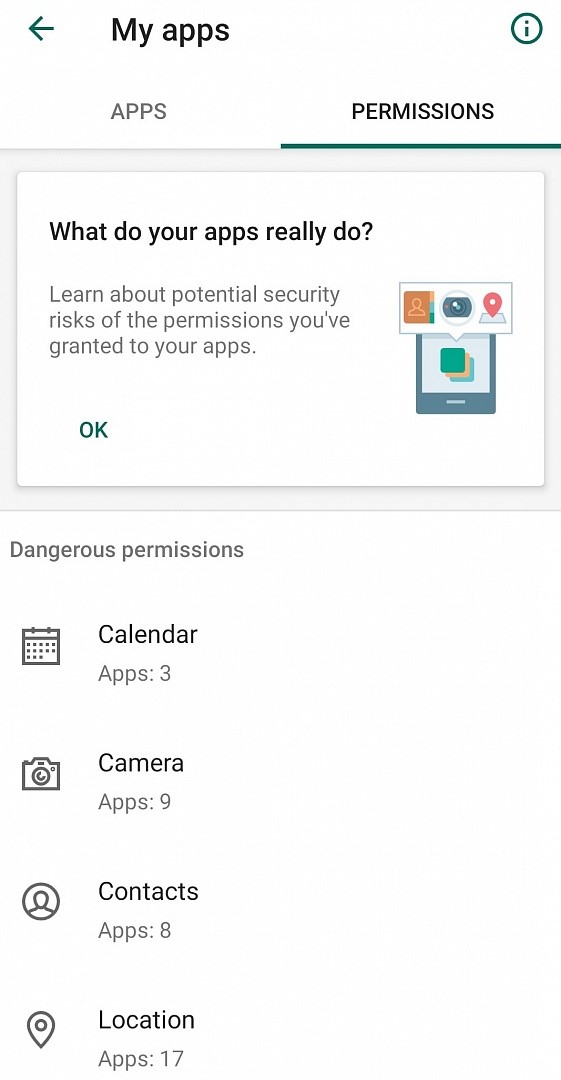• May I ask your permission? The new version of Kaspersky Security Cloud strengthens privacy control for apps and websites
• Kaspersky has updated Kaspersky Security Cloud – its account-based service with access to the company’s best consumer technologies and tools – with new ways to protect user privacy across multiple devices.
Kaspersky Security Cloud now reduces the risk of users’ privacy being violated by warning them about the risks of dangerous and special permissions requested by apps on Android devices. In addition, it notifies users about phishing attempts hidden behind shortened links to websites. Kaspersky’s traditional consumer product line, with Essential-to-Premium solutions, has been further enhanced to offer a better user experience through performance improvements and optimizing the number of notifications.
According to Kaspersky’s report – The true value of digital privacy: are consumers selling themselves short? – it is increasingly common for consumers to protect their digital privacy by checking the settings on their devices and the apps that they use. In fact, more than a third (35%) of consumers regularly follow this practice.
However, as apps today often make suspicious permission requests that could endanger user privacy, confusion reigns. In order to simplify consumers’ control over privacy and save time in managing settings, Kaspersky Security Cloud’s new feature for Android devices enables users to view and manage app permissions in one place, at a glance. This helps identify potentially dangerous or questionable requests made by an app, and explains the risks associated with different types of common permissions.

In addition to suspicious app permissions, there’s another privacy risk that consumers need to be aware of and this has been accounted for in the new version of Kaspersky Security Cloud. In recent years, short URLs have seen widespread adoption due to the limited amount of characters they take up in instant messages or tweets. In fact, many legitimate services now use short URLs to link to desired webpages for sales and marketing purposes. However, while there are benefits, they can be dangerous as users don’t neccessarily know where they lead.
This can have serious privacy consequences and has resulted in the increased popularity of short URLs among cybercriminals in recent years. To combat this, users of Kaspersky Security Cloud can take advantage of an improved Anti-Phishing feature to better protect personal information. The service analyzes short URLs and warns if a phishing link is hidden behind them. As part of this process, Kaspersky Security Cloud sends an anti-phishing alert to the user and ensures that the links and websites they access are safe.
“For modern users, it is not enough to just secure their device. Cybercriminals are becoming more interested in obtaining personal information about a specific person – whether it is a piece of financial information or their search history. If this sort of information is exposed, it can bring potential harm to its owner making the issue of digital privacy extremely important. In order to provide more control over personal information regardless of which type of device they use, we have updated Kaspersky Security Cloud. We are helping consumers keep their personal data safe and sound across multiple devices,” comments Marina Titova, Head of Consumer Product Marketing at Kaspersky.
There are three editions of Kaspersky Security Cloud: Free (extended version of Kaspersky Free that now, apart from Windows, supports mobile devices and delivers personalized protection), Personal and Family. Each edition offers a different number of applications, tools and technologies. All Kaspersky Security Cloud subscribers can install their applications and technologies on a PC, Mac and mobile devices. What is more, all customers will receive the new features and updates for free within the subscription period.
As well as updating Kaspersky Security Cloud, Kaspersky has also refined the interface and key capabilities within Kaspersky Anti-Virus, Kaspersky Internet Security and Kaspersky Total Security. This has improved performance, how consumers receive notifications, and the overall user experience.
Kaspersky has worked on improving its traditional security solutions’ performance for Windows. For example, in order to speed up lengthy file system scans for malware, the restriction on the PC’s resources consumed has been lifted. Furthermore, the latest version can be installed in just half the time and is 15% ‘lighter’ – so there’s less load on the user’s PC.
In addition, security solutions now only alert users about significant events and ensure a frictionless experience. For instance, when a user visits a banking website, they receive a notification from the Safe Money feature, informing them that their session is protected.
Kaspersky has also simplified how credentials and account information is exchanged between the company’s products. Thus, consumers who already use some of Kaspersky’s software do not have to re-enter their credentials whenever they install a new product. Rather, they can manage them all under one My Kaspersky account.























